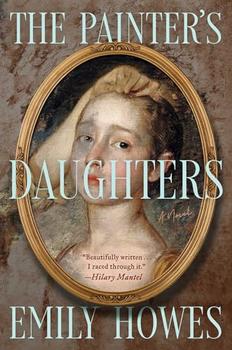Summary | Excerpt | Reviews | Beyond the Book | Readalikes | Genres & Themes | Author Bio
How One Woman Made Good on Her Extraordinary Pact to Send a Classroom of 1st Graders to College

Critics' Opinion:
Readers' Opinion:
First Published:
Apr 2005, 272 pages
Paperback:
Dec 2007, 272 pages
 Book Reviewed by:
Book Reviewed by:
BookBrowse Review Team
Buy This Book
1
The Education of Oral Lee Brown
Even though I acted as a surrogate parent to twenty-three kids, I didn't
always understand what they were going through growing up. I couldn't compare my
childhood to theirs at all. Even though I'm just in my early sixties, and was
only in my forties when I made my promise, the world of my childhood has
disappeared. Well, in most ways, I hope!
I was born in Mississippi in the early 1940s, in a small town just outside
Batesville. At the time Batesville, which is on the Tallahatchie River about
fifty miles southwest of Memphis, Tennessee, had a population of about 15,000
people. The most interesting thing about Batesville when I was growing up was
the fact that it was on the main train line that wound through the country, so
we got to see all kinds of people coming and going when we were children. We
also got to dream of leaving on that train, and believe you me, did I dream of
leaving Mississippi! Even as a child I knew that there had to be a better life
for me somewhere else, somewhere with racial integration and economic
opportunity.
I am the ninth of twelve children born to Walter and Nezzie Bivins. My
parents are old-fashioned farming folk: we grew cotton and corn, and we were
very proud of the fact that we were one of the only black families in Batesville
who owned our own land. Almost every other black family worked as sharecroppers,
which meant that they did all the hard work on another man's land and then had
to give most of the profit right back to the owner. That's why black people in
the South stayed poor.
My father worked as a sharecropper for years and years before he saved up
enough money to buy that land, and then we cleared and tilled it ourselves. When
I say "we," I mean all of us--even at the age of eight years old I was picking
fifty pounds of cotton a day, and then going back in the house to cook for
twelve people. This was the time in my life when I learned a lot of the
discipline--not to mention the penny-pinching--that it took to put an entire
class of children through college.
You see, when you're picking cotton, you're doing it with the understanding
that there's not a lot of money to be made in it. In fact, you're breaking your
back for almost nothing. I'll give you an example: my family was so disciplined
about working our own sixty acres that some years, we finished our crop in time
to work on another farm that hadn't finished all the picking. We were paid every
day for the amount of cotton that we picked, and so I can tell you exactly how
much the fifty pounds of cotton that I picked every day at the age of eight
years old was worth: two dollars. I remembered that later on when I was
struggling to save enough money to put my babies through college: Oral Lee, I
said to myself, you used to work for two dollars a day. You can get through
this. And I always did.
It was a hard life in Mississippi. It was hard not just economically but
socially, too. Thanks to segregation, black people had to live in a part of town
called the Vance Bottom, down by the river, while white people lived up the hill
in Batesville proper. Every few years the river flooded and destroyed many
homes, and do you think any of those white people ventured down the hill to help
out? That's right--they didn't. But they still expected black people to move off
of the sidewalk when a white person passed by, and to keep their mouths shut
after a black person was lynched by a white mob. That happened fairly often,
too. Mississippi was a violent place to be a child.
In many ways, I'm one of the lucky ones. I left home when I was twelve years
old. What happened was that one of my older sisters, Willie Bea, married a young
man named Paul and followed him to Newburgh, New York. They had heard there were
good jobs up North, and they wanted to escape segregation. They also started
having children nearly every year of their marriage, including two sets of
twins! They eventually had eight children in all. That would have been far too
many babies for Willie Bea to manage by herself, so I lobbied my mother to be
the one who got to leave Mississippi and help out.
Excerpted from The Promise by Oral Lee Brown with Caille Millner Copyright © 2005 by Oral Lee Brown. Excerpted by permission of Doubleday, a division of Random House, Inc. All rights reserved. No part of this excerpt may be reproduced or reprinted without permission in writing from the publisher.




Children are not the people of tomorrow, but people today.
Click Here to find out who said this, as well as discovering other famous literary quotes!
Your guide toexceptional books
BookBrowse seeks out and recommends the best in contemporary fiction and nonfiction—books that not only engage and entertain but also deepen our understanding of ourselves and the world around us.